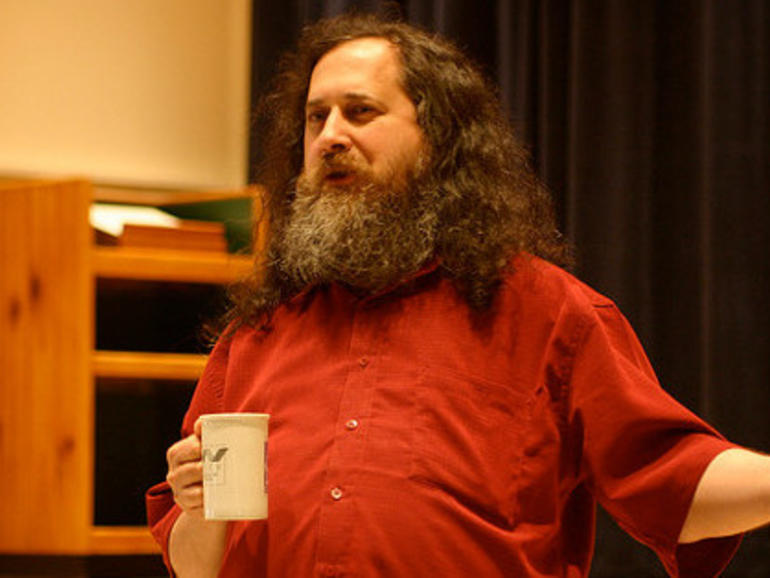Richard M. Stallman (RMS) has always been a polarizing figure. There are people who love him and those that hate him. For example, RMS often clashed with Linus Torvalds. RMS has claimed that the Linux operating system should be called GNU/Linux. He also clashed with Eric S. Raymond, one of open-source’s founders, and others over the differences between open-source software and free software. And, for many years, women have objected to his misogynistic manner and language. The last finally caught up with him when RMS defended the behavior of the late Marvin Minsky, AI pioneer and associate of notorious billionaire sex offender Jeffrey Epstein. Subsequently, Stallman resigned from his Free Software Foundation (FSF) leadership roles. Then, to the surprise of many, Stallman himself announced that he was back on the FSF board of directors.
This move has enraged many open source and free software leaders and organizations. Indeed, the FSF itself still hasn’t officially announced the news, although its site does list RMS now as a member of the FSF board of directors. The FSF Twitter feed’s latest message is: “No LibrePlanet [the FSF annual meeting] organizers (staff or volunteer), speakers, award winners, exhibitors, or sponsors were made aware of Richard Stallman’s announcement until it was public.”
How did RMS make it back from his self-imposed exile? In an e-mail interview, the FSF Executive Director, John Sullivan, said, as per the FSF bylaws “Directors are elected by the FSF’s voting members (which include the directors), or can be elected just by the directors.” Which was the case here? Sullivan didn’t say.
It appears from comments by board members that RMS was elected by the directors and not the voting members. Kat Walsh, a FSF board member and technology attorney tweeted, “for whatever it’s worth, I did not support the decision to reinstate RMS. I made my arguments and placed my opposing vote; while I was glad I was able to do that I regret not being able to turn the decision the other way.”
“The announcement was unplanned and I expected to have more time for things I wanted to say and do first, but no, I don’t think it was the right decision by the FSF, whose mission is needed but which keeps falling short of fulfilling it,” concluded Walsh.
As to the delay of the announcement of RMS’s return, Sullivan states “The announcement itself was not coordinated, see, so there was no prepared statement. The organization is looking at how that happened and will address it. In the meantime, we have received a lot of feedback. We are reading it and listening carefully.”
If they’re listening carefully, their ears must be red. Paul Fisher, a Lyft software engineer, tweeted, “I worked at the FSF for 3 years and volunteered for over 6 years — that ended in 2004. I witnessed misogyny, sexual objectification, and abuse carried out by RMS.”
Fisher added, “While RMS started the free software movement and the GNU GPL was a groundbreaking document, the community still has a right to hold him to account for his abhorrent actions and harmful speech. RMS should not be part of the FSF.” Fisher continued, “The movement has grown larger than one person. We need leaders that are inclusive and treat all humans with the respect and dignity that they deserve. I cannot support a Free Software Foundation that enables RMS.”
A more recent FSF employee said things had changed little since Fisher’s time. Georgia Young, former FSF program manager, tweeted, “I worked at the FSF from 2015-2018 & was [Union] shop steward for a while. I recall having a months (MONTHS) long conversation with ED John Sullivan about why racist & sexist ‘hacker humor’ from the 90s needed to be removed from http://gnu.org. rms didn’t get why it was harmful.“
Young continued, “The thing that randos who have never had to actually work with rms don’t understand is that MANY people who deeply respected him tried to help him learn to not objectify women, shout over others at Libreplanet as if it was his birthday party, stop sh*t like ’emacs virgins.’
Instead, “That energy, utterly wasted, could’ve been spent advocating for free software and building the inclusive, impractical community so many people WANT. Spent, instead, on a man’s ego, over and over.”
Matthew Garrett, a well-known Linux kernel developer and former FSF board member, tweeted, “The idea that someone who does enough “good work” earns a pass for inappropriate behavior is pervasive, and fosters environments where abusers can prosper. People who hold this belief shouldn’t be involved in running organizations.“
Unfortunately, the current FSF board doesn’t see this. Garrett added, “I just can’t get over the level of reckless disregard the FSF board must have for the staff.” At the same time, though, “I obviously disagree strongly with decisions that the current board made. But they haven’t made these decisions to benefit themselves. They earnestly believe that they’re doing the best thing for the FSF.”
Based on how other groups and individuals are responding to this move, the FSF board is sadly out of touch with their community. Yes, there are still loyal RMS fans, but that’s exactly what they are — fans, not the movers and shakers of today’s free software and open-source world. An open letter to the FSF states:
Richard M. Stallman, frequently known as RMS, has been a dangerous force in the free software community for a long time. He has shown himself to be misogynist, ableist, and transphobic, among other serious accusations of impropriety. These sorts of beliefs have no place in the free software, digital rights, and tech communities. With his recent reinstatement to the Board of Directors of the Free Software Foundation, we call for the entire Board of the FSF to step down and for RMS to be removed from all leadership positions.
It’s been signed by Neil McGovern, GNOME Foundation executive director and former Debian Linux Project Leader; Deb Nicholson, general manager of the Open Source Initiative (OSI); Garrett; a who’s who list of free software and open-source developers and leaders; and hundreds of others.
They’re not alone. The Free Software Foundation Europe was appalled by RMS’s return. This organization, which is independent of the FSF, called for RMS’s resignation from all FSF bodies. The FSF needs to seriously reflect on this decision as well as their decision-making process to prevent similar issues from happening again. Therefore, in the current situation, we see ourselves unable to collaborate both with the FSF and any other organization in which Richard Stallman has a leading position.”
Numerous other open-source organizations, including the OSI, the Mozilla Foundation, and the TOR Project are demanding RMS be removed from the FSF. The Software Freedom Conservancy, which is best known for its legal work in defense of the GPL, which Stallman wrote, has ceased working with the FSF.
What all this adds up to, from where I sit, is potentially the end of the FSF. For years, it’s become less and less relevant. In no small part that was because RMS refused to learn how to work and play well with others. Yes, he had great ideas, but he also alienated many would-be supporters along the way, including many people who had worked directly with him. RMS’s day as a relevant free software leader is long over. If the FSF doesn’t change course immediately, its days may be numbered as well.



